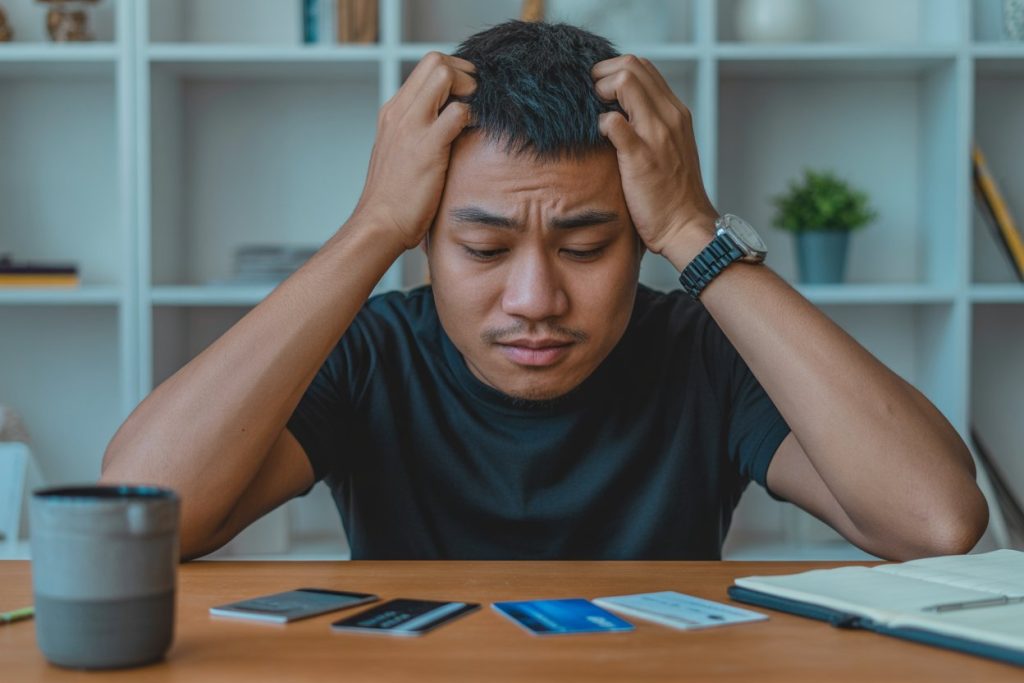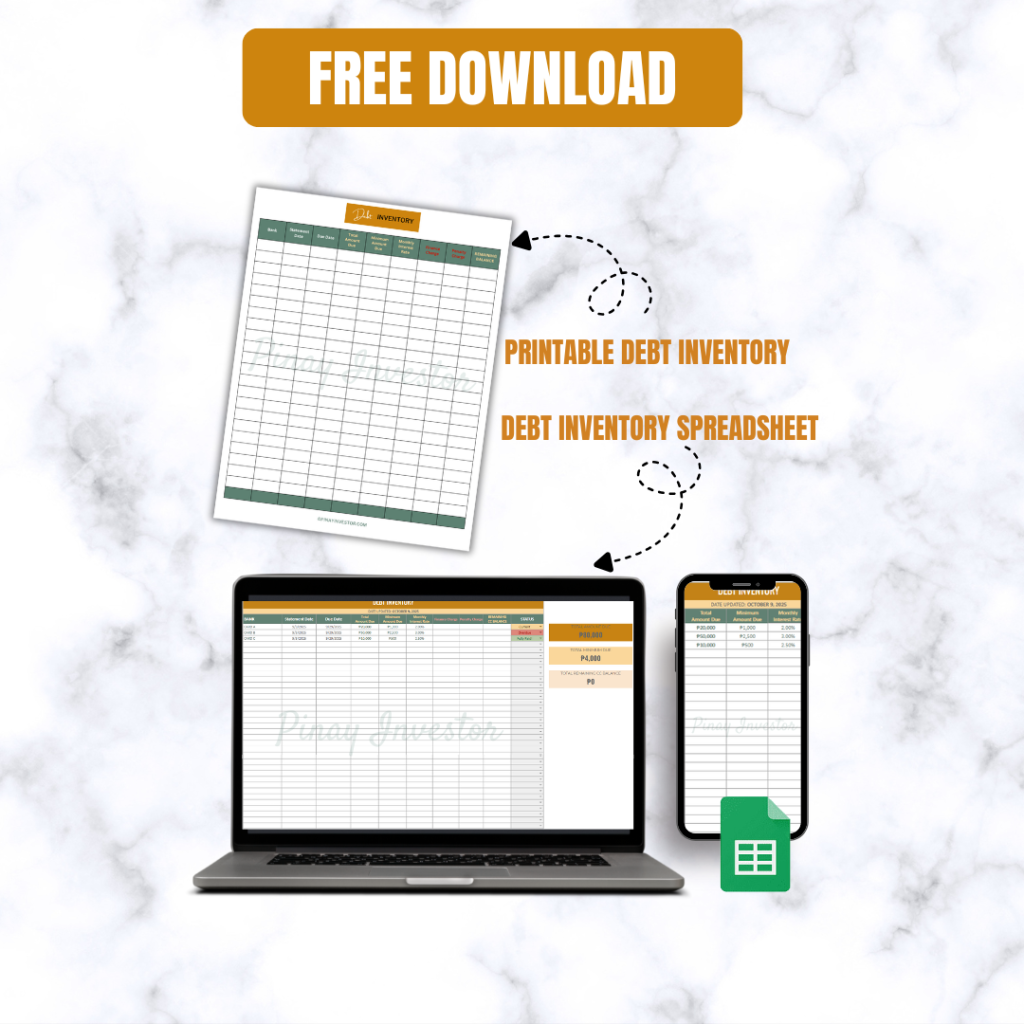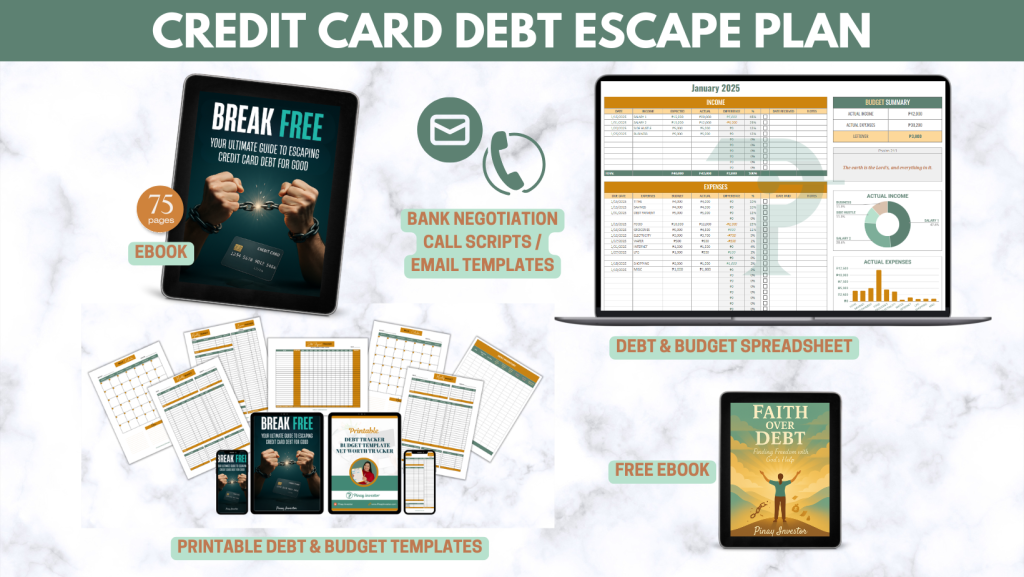You skip a payment, promising to catch up next month. Then another bill comes in, and another.
Soon, your inbox is full of reminders, and you start avoiding calls with unknown numbers.
At some point, the thought crosses your mind: “What if I just stop paying?”
It’s a question thousands of Filipinos quietly ask every month, especially now, when prices keep rising and paychecks barely stretch.
But what really happens if you stop paying your credit card debt in the Philippines?
Will they sue you? Will you go to jail?
Let’s break it down clearly, minus the scare tactics.
1. Your Balance Grows Faster Than You Think
Once you miss a payment, your balance doesn’t just sit still. It grows.
Banks immediately add interest, late payment fees, and penalties to your account.
The standard credit card interest in the Philippines is capped by the Bangko Sentral ng Pilipinas (BSP) at 3% per month, or 36% per year—still a huge number when compounded.
Let’s say you owe ₱30,000 and miss two months:
-
Monthly interest (3%) = ₱900
-
Late payment fee = ₱850
After two months, you already owe over ₱31,700—even without new purchases.
The longer you ignore it, the faster it snowballs. And eventually, that snowball turns into an avalanche.
2. Collection Calls and Emails Start Coming In
After one or two missed payments, your bank will start contacting you. They’ll send text messages, emails, letters, and eventually, phone calls.
At first, it might sound like reminders:
“Good day, Ma’am. This is to remind you of your ₱____ due on your credit card.”
If you still don’t pay, your account gets transferred to the bank’s internal collections team or outsourced to a third-party collection agency.
This is when the calls become more frequent, sometimes several times a day. Some collectors may call your office or family members.
Here’s what you need to know:
-
You are not required to take abusive calls.
-
You can request written communication instead of phone calls.
-
Collectors cannot threaten, humiliate, or call at odd hours (before 6 a.m. or after 10 p.m.).
If harassment happens, document the calls and report them to the Bangko Sentral ng Pilipinas (BSP) or the Credit Card Association of the Philippines (CCAP).
3. You Cannot Be Jailed for Unpaid Credit Card Debt
This is the biggest fear and the biggest myth.
You cannot go to jail just for not paying credit card debt in the Philippines.
The 1987 Philippine Constitution, Article III Section 20, clearly states:
“No person shall be imprisoned for debt.”
That means unpaid credit card debt is a civil matter, not a criminal one.
However, the bank can file a civil case for collection. If the court rules in their favor, they can legally garnish your wages (take part of your salary through a court order) or seize certain assets, but only after a long due process.
So no, you won’t get arrested or detained just because you can’t pay.
But ignoring your debt can lead to long-term financial consequences that follow you for years.
Read: Can You Go to Jail for Credit Card Debt in the Philippines?
4. Your Credit Record Takes a Major Hit
Banks and financial institutions in the Philippines report borrower information to the Credit Information Corporation (CIC) — the government’s central credit database.
When your payments are delayed or unpaid, the negative record gets logged in your CIC Credit Report.
Other banks and lenders can access that record when you apply for new loans, housing, or credit cards.
A single default can affect your credit standing for up to several years.
This means even if you eventually pay or settle, your name might stay flagged in the system for a while.
If you plan to apply for a home loan, car loan, or even a postpaid phone plan, that record can be a deal-breaker.
5. Collection Agencies May Chase You for Years
Once your debt gets “charged off” —meaning the bank writes it off as uncollectible—it doesn’t disappear. They usually sell or transfer it to collection agencies for a fraction of the value.
Those agencies then try to collect the full amount (plus interest). That’s why you might get messages or calls about debts that are already years old.
You may even see posts on Reddit and FB groups from people saying, “A collector contacted me about a debt from 10 years ago, what do I do?”
Technically, debts have prescriptive periods—usually 10 years for written contracts—but it depends on your case.
It’s best to consult a lawyer before signing any settlement documents, especially if the debt is old.
6. You Might Get a Settlement Offer — Read Carefully
At some point, the bank or collection agency might offer a discounted settlement or a one-time payment plan.
For example:
“Pay ₱20,000 instead of ₱40,000 and we’ll close your account.”
These offers can be legitimate, but always ask for:
-
A written settlement agreement (email or printed letter)
-
A Certificate of Full Payment or Clearance once settled
Don’t just rely on text messages. Get everything in writing so your name can be cleared properly in the system.
7. Ignoring Debt Can Affect Your Future
Even if collectors stop calling, unpaid debt doesn’t magically disappear. It stays in your credit report and can affect:
-
Future loan or mortgage applications
-
Business financing
-
Job applications (some employers check credit history for finance roles)
It also takes a toll on your mental and emotional health. Carrying the weight of unpaid debt often leads to anxiety, guilt, and sleepless nights.
That’s why facing it early is not just about money, it’s about your peace of mind.
Read: How Debt Seriously Impacts Your Mental Health
What You Can Do If You’re Already Behind

If you’re months or even years behind, it’s not too late. Here’s how you can start fixing it:
1. Contact Your Bank, Not Just the Collectors
Go back to the source. Ask the bank if they still hold your account or if it’s already with a third-party agency.
If it’s still with the bank, you have more room to negotiate — sometimes they can offer balance conversion programs with lower interest.
2. Document Everything
Keep records of every call, text, email, and letter. If you ever need to prove harassment or dispute payments, documentation is your shield.
3. Know Your Rights
Under BSP Circular 454 and CCAP guidelines, collectors cannot:
-
Harass or threaten you
-
Contact your workplace or relatives without consent
-
Publicly shame you on social media
If they violate these, report them to the BSP Consumer Affairs Office or CCAP.
4. Create a Debt Repayment Plan
List all your debts in one place.
Use the Debt Inventory Tracker to see the full picture—balance, interest, due dates—then plan payments based on what’s realistic.
Start with the smallest balance for motivation (Snowball Method) or the highest interest for maximum savings (Avalanche Method).
5. Rebuild Your Emergency Fund
Debt often grows because of emergencies. Start saving ₱50 a day or ₱1,500 a month. That cushion prevents you from relying on credit again when life happens.
6. Consider Professional Guidance
If your total debt feels unmanageable, consult a registered financial planner or debt coach. They can help you create a strategy and talk to banks on your behalf.
Why Facing It Now Matters
Unpaid credit card debt is like a wound. The longer you ignore it, the deeper it gets.
Yes, you can’t be jailed for it. But it can follow you quietly through credit reports, collection calls, and missed opportunities.
Facing it doesn’t mean you have to pay everything all at once. It means choosing to stop running, to take control again—one payment, one conversation, one small victory at a time.
Take the First Step
If you’re in this situation right now, start small.
-
Download your Free Debt Inventory Tracker to see all your balances in one place.
-
Read Break Free: Your Ultimate Guide to Escaping Credit Card Debt for Good — it will guide you through 13 strategies, including how to negotiate with banks, deal with collectors, and rebuild your financial foundation.
You may feel stuck today, but you’re not powerless.
Debt doesn’t define you. How you rise above it does.



